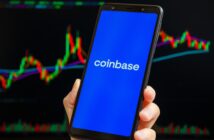When the Department of Justice reversed its 2011 interpretation of the Wire Act in November, it ruffled the feathers of states like New Hampshire, which had just begun offering lottery tickets online two months prior to help fund public education.
“It criminalized non-sport-related online betting and wagering,” said Eleni Melekou, an attorney with the Pardalis & Nohavicka law firm in New York.
New Hampshire’s lottery generated $87.5 million in net profits last year and this year some $90 million is expected.
“New Hampshire is taking action to protect public education in New Hampshire,” said Gov. Chris Sununu in a statement online. “We have a responsibility to stand up for our students.”
On Feb. 15, the New Hampshire Lottery Commission (NHLC) filed a federal lawsuit against U.S. Attorney General William Bar in District Court for the District of New Hampshire.
“The 2018 Opinion is contrary to law and beyond the defendant’s statutory authority to enforce,” wrote New Hampshire Attorney General Gordon J. Macdonald in the complaint.
NeoPollard Interactive, the lottery’s technology and service provider, followed with its own complaint, and so far the Coalition to Stop Internet Gambling, the National Association of Convenience Stores, the Development and Economic Association, the Commonwealth of Pennsylvania, and the states of New Jersey and Michigan have filed amicus briefs.
In 2011, under former President Obama, the DOJ issued guidelines, determining that the Wire Act, also known as U.S.C. § 1084, applied only to online sports betting and that casino gambling as well as online poker were outside the act.
“It was good news for online operators,” said Mark Bello, an attorney in West Bloomfield, Michigan. “The purpose of the law was to punish organized crime and illegal bookmaking services that took bets by telephone.”
Some 15 states have legalized online sports betting following the U.S. Supreme Court’s decision in National Collegiate Athletic Association v. Christie, overturning Professional and Amateur Sports Protection Act of 1992 (PASPA), which prohibited state-sanctioned sports gambling.
“PASPA was perceived to be in violation of the 10th amendment because the federal government was taking away the ability of individual state governments to decide whether they wanted to conduct sports gambling within their own state,” said Ricky Volante, a professor and the executive director of the Great Lakes Sports Entertainment Law Academy, a program at Case Western Reserve University Law School.
The SCOTUS ruling allowed any state to enter the arena of sports gambling online which had previously been reserved for Nevada.
“New Hampshire does have a strong opportunity to hopefully overturn the 2018 DOJ ruling and, at best, reduce the reading of the Wire Act to only apply to sports gambling as it was prior to November 2018,” Mr. Volante told PacerMonitor News.
When asked why the Department of Justice changed its 2011 position in 2018, the DOJ Office of Public Affair’s Kelly Laco emailed PacerMonitor News a memo that former Deputy Attorney General Rod Rosenstein sent to United States Attorneys explaining that the shift was an “internal exercise of prosecutorial discretion.”
“A 90-day window will give businesses that relied on the 2011 [Office of Legal Counsel] OLC opinion time to bring their operations into compliance with federal law,” wrote Mr. Rosenstein on Jan. 15.
As a result, the climate around gambling is similar to the Wild West, according to Mr. Volante, as many states wonder how to operate their lotteries and betting schemes, if at all.
“If I were a gambler, I might try to limit my current activities to the casino rather than gambling online until these issues are settled, but either way, I don’t think the individual gambler faces much jeopardy,” Mr. Bello told PacerMonitor.
That’s because with the current state of the law, there is no clear violation of statute. “There is a susceptibility that any state currently permitting interstate betting could be perceived or ultimately determined to be acting outside the scope of the law,” Mr. Volante said.
As more states complain, Congress may be forced to pass a law that provides consistent standards for states to follow. “I do not believe that the 2018 Opinion will have an impact on states that license and regulate online gambling intrastate,” Bello said. “Where it will have an impact is on those states that are planning to operate interstate or share player pools across state lines.”
Currently, any betting or gambling activity through wires, online or through the use of automated systems is likely illegal unless Judge Paul J. Barbadoro decides differently in the New Hampshire Lottery lawsuit.






